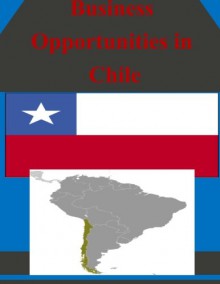As the United States - Chile Free Trade Agreement (FTA) concludes its eighth year, trade in products and services continueto be a resounding success. As of January 1, 2004, duties were reduced to zero on 90% of U.S. exports to Chile with all remaining tariffs to be phased out by 2015. In 2011,...
show more
As the United States - Chile Free Trade Agreement (FTA) concludes its eighth year, trade in products and services continueto be a resounding success. As of January 1, 2004, duties were reduced to zero on 90% of U.S. exports to Chile with all remaining tariffs to be phased out by 2015. In 2011, bilateral trade between the United States and Chile reached US$ 24.8 billion, an over 300% increase over bilateral trade levels before the U.S.-Chile FTA was implemented. U.S. exports to Chile in 2011 reached a record US$ 15.8 billion while imports from Chile reached US$ 9 billion. In 2010, the United States and Chile concluded the negotiations of a bilateral tax treaty that has not yet been ratified in either Congress. The United States remains the single largest cumulative direct investor in Chile, representing 24% of all net foreign direct investment from 1974 to 2011. Spain follows closely with 20.8%, and Canada is third at 18.5%. However, Canada has led all nations in investment from 2009 to 2011. Macroeconomic stability and growing integration with international capital markets has earned Chile an A+ credit rating, the highest in Latin America. Chile remains one of the most stable and prosperous developing nations and consistently ranks high on international indices relating to economic freedom, transparency, and competitiveness. It also fares very well in terms of democratic development, gross domestic product per capita, freedom of the press, and was the highest ranked country in Latin America in terms of competitiveness, according to the World Economic Forum’s Global Competitiveness Report 2009-2010. Chile continues to pursue market-oriented strategies, expand global commercial ties, and actively participate in international issues and hemispheric free trade. Chile is a member of the Rio Group, an associate member of Mercosur, a full member of APEC, and a founding member of UNASUR. In 2010, Chile became the 31st member of the OECD, only the second Latin American country to join after Mexico. With Free Trade Agreements with Europe, China, India, and North America, Chile has given its nearly 17 million citizens unprecedented access to the world’s products and services. This offers a unique opportunity for U.S. exporters interested in expanding their businesses in arguably the most open and stable market in Latin America.
show less

